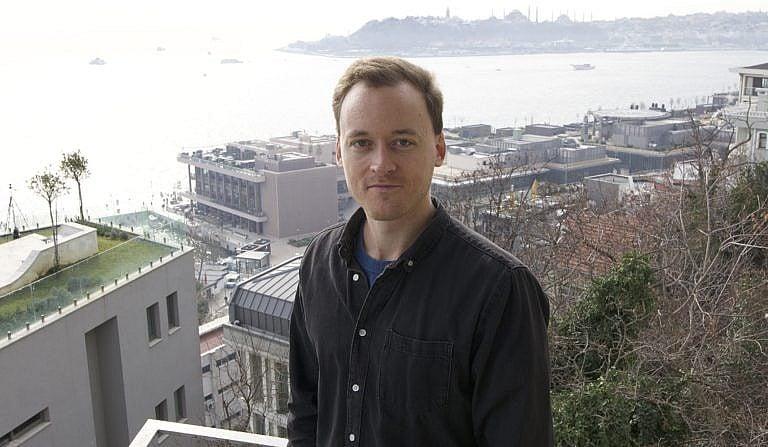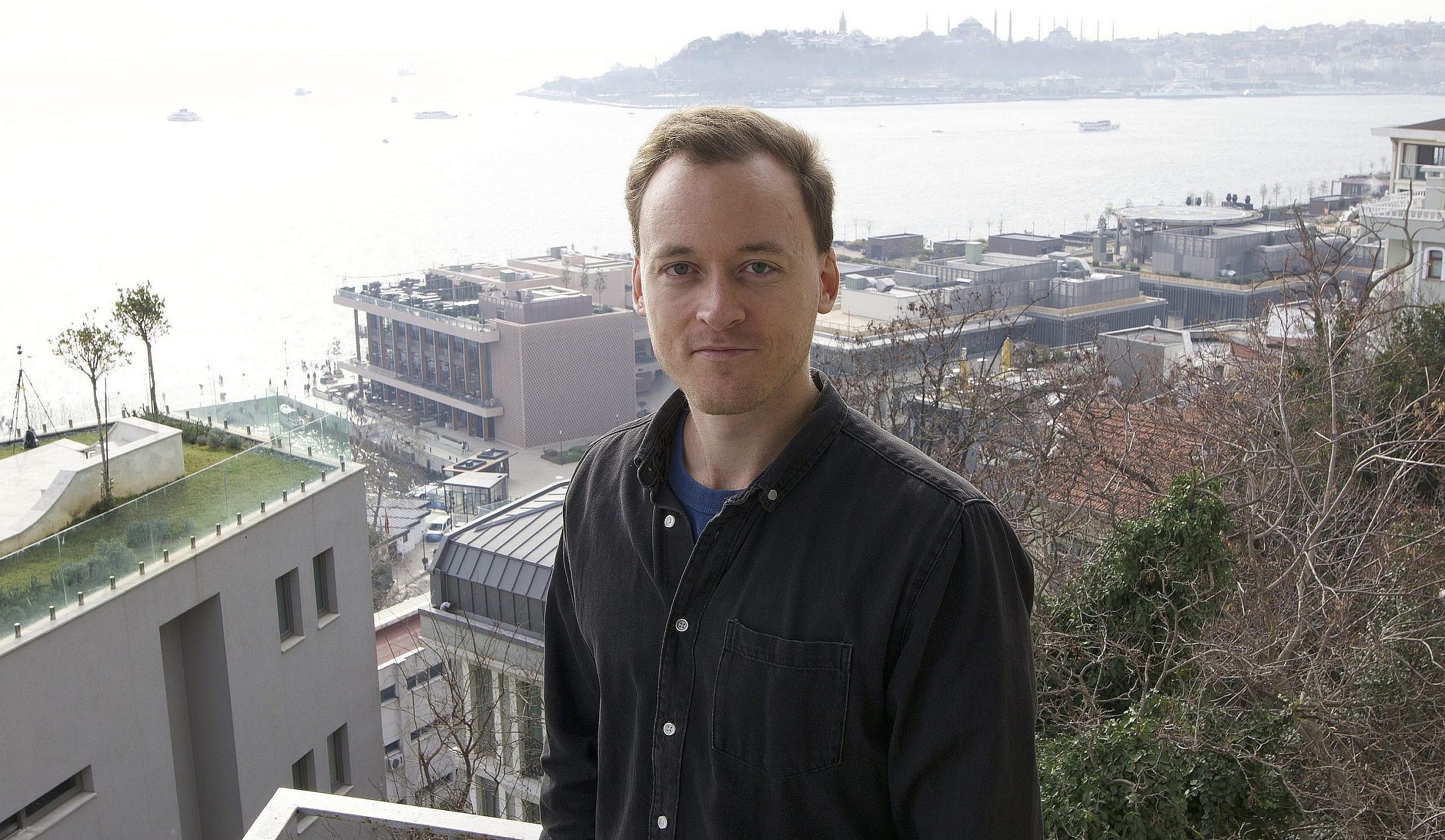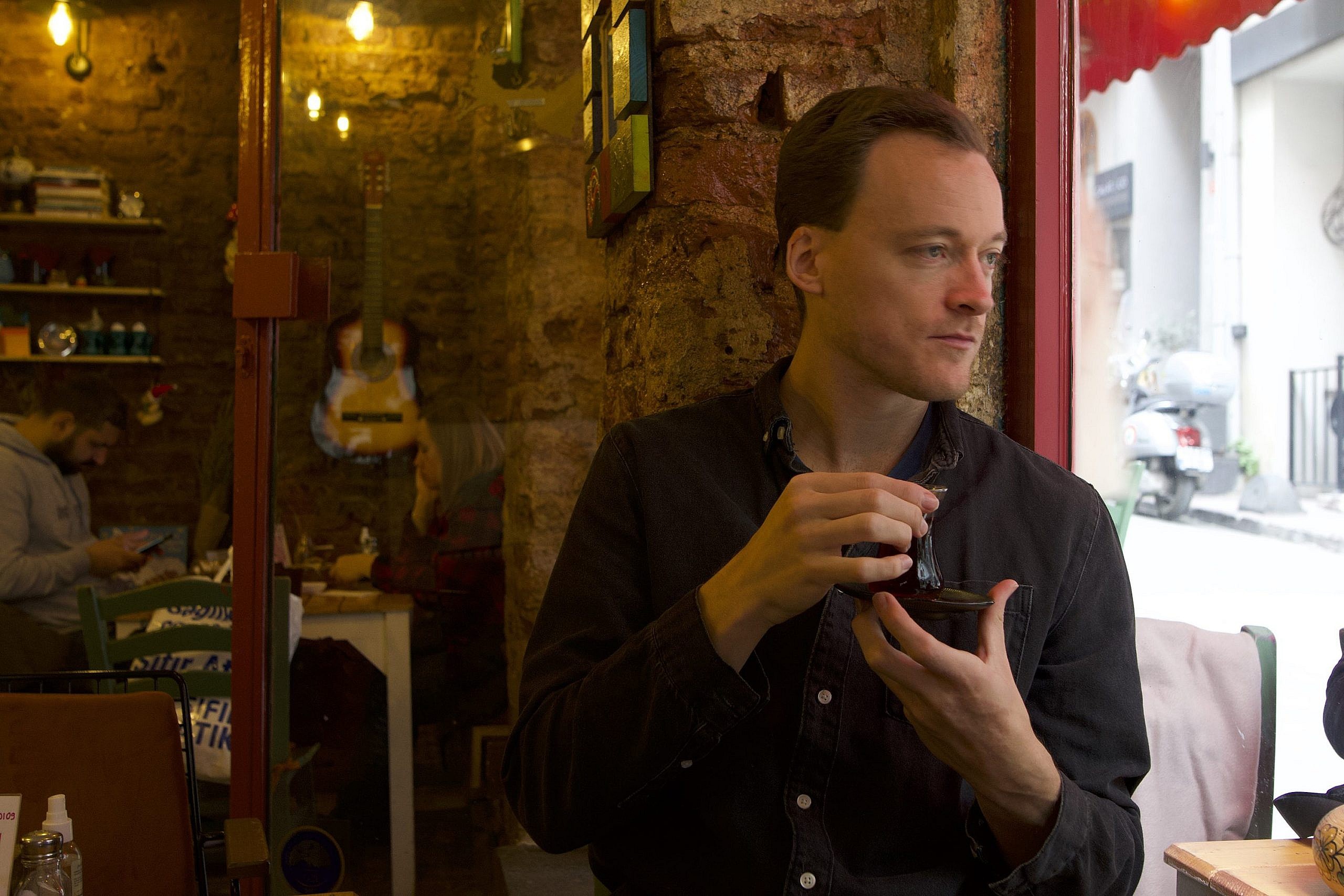I left Canada to live as a digital nomad in Istanbul. Here’s why.
“In Turkey, I can live in one of the world’s great metropolises—without breaking the bank”

Share

Like most young Canadians, my dream has always been to find a career that makes me happy and gives me the financial freedom to live my best life. There was a time when that was possible in Canada, but it doesn’t feel like that anymore, with the cost of living skyrocketing and salaries stagnant. For a lot of Canadians, the magic combination of a job you love and a lifestyle you love is the kind of fiction you see on TV.
That’s especially true if you love city life. I grew up in Blackstock, Ontario, a small town of fewer than 800 people, an hour’s drive northeast of Toronto, but my heart has always been in big cities, and I had no problem sacrificing to live in them. In Toronto, while trying to get an online business off the ground, I rented university dorms to live in. During an internship in New York, I shared a 250-square-foot apartment with a depressed, out-of-work roommate addicted to video games. During the days, I went to my internship at a career-coaching company, earning less than minimum wage. At nights I wandered the city, reading and contemplating what I wanted out of life.
It was then that I read a book by Timothy Ferris called The 4-Hour Workweek. It shattered everything I thought I knew about work, lifestyle and how to live. What if you just moved anywhere in the world and worked online and lived like a king instead of living like a schmuck somewhere like New York? In my last year at Wilfrid Laurier University, I got a job with a local tech startup that operated totally online, and decided to try it myself. I left Canada for good in 2014, when I was 22 years old, to become a digital nomad—someone who takes advantage of modern communications technology to work from anywhere with a decent internet connection.
When I first started out, I was travelling around the world, living out of my backpack and running a travel blog that made me just enough money to buy my next plane ticket. I supplemented that with travel writing, which didn’t pay much, but it gave me enough to live. I would spend summers in Berlin and winters in Buenos Aires or Chiang Mai. I met the most amazing young people from around the world, who inspired me with their global perspectives.
But that’s backpacker life—kid stuff. In 2018, at the age of 26, I decided to settle down and build a business. Not by going back home, but by relocating to Istanbul, Turkey, where I could live in one of the world’s great metropolises without breaking the bank. The cost of living in Istanbul is cheaper than in Toronto or Vancouver—or, for that matter, Edmonton, Winnipeg or London, Ontario. How could Canada compete?
Today, I live in Istanbul’s historic Galata district, a short walk from the ancient Galata Tower. My apartment is a beautiful one-bedroom with high ceilings, which costs a fraction of what it would be in most cities in Canada. It isn’t palatial, but it’s not a shoebox either. I can walk out my front door and be at Istanbul’s seaside in five minutes. Or in a rooftop bar with stunning sea views in two minutes. Or in Cihangir, Istanbul’s hipster central, teeming with bars, cafés and restaurants frequented by other remote workers, in 10 minutes.
The low cost of living in Istanbul meant I could take the next step and expand my business, a personal finance blog that provides financial guidance to readers, mostly Canadians. The site generates revenues in dollars and euros, while my expenses are mostly in Turkish liras. That’s allowed me to hire staff who provide content, and it’s helped me build my business to the point where I’m not just living month to month, but putting money aside and planning for the future, while still enjoying a lifestyle that makes me happy. I’ve even finally been able to write the book I’d been meaning to write, about innovative problem solvers and the creative techniques they use, which I self-published in 2021. Doing any of this in Canada would have been nearly impossible—I almost certainly would have instead followed a safer and more traditional corporate path to a nine-to-five office job.
It may sound decadent, like having my cake and eating it too, but most people living like this are from relatively humble backgrounds, not privileged children of wealth traipsing around the world. We’re young people just starting out on our career journeys, who do it not only because it buys us a better lifestyle, but because it gives us freedom to take the kinds of risks I did. I think of it as a more respectable—and exciting—version of living in your parents’ basement: you lower your cost of living, which increases your risk tolerance significantly. You can be creative, and you can pursue your passion projects without the fear of falling behind financially.
In Canada, I would be paying three times as much for the same standard of living, and there wouldn’t be much left for risk-taking. I certainly wouldn’t be able to afford to rent yachts with friends, or take full-day cruises up the Bosphorus Strait, or travel for weeks to exotic places (I’m planning a five-week motorcycling adventure in Vietnam). Instead I can live a dream life with an incredibly diverse group of friends, a Turkish girlfriend and a rhythm in my daily routine that isn’t soul-crushing.

In the past couple of years, the post-pandemic proliferation of remote working opportunities, plus the spiralling cost of living in Canada, have made this kind of lifestyle even more popular—but even though it benefits people like me, I know, it’s not all upside, especially for the locals. Digital nomads tend to congregate in specific neighbourhoods, like Istanbul’s Galata, Mexico City’s Roma Norte or Lisbon’s Alfama. These are usually the nicer, more historic areas, and in my case, the charm of my neighbourhood has begun to wear off. It used to be full of regular Turkish people, living their lives. The gentrification that’s come with people like me moving in has changed that, partly thanks to the pandemic, and also partly thanks to the war in Ukraine. Young, educated Russians, especially tech workers, who were worried about being drafted into the Russian military, have flooded into the city. Housing prices have spiked as apartments have been converted into Airbnbs. Local businesses have started to cater to foreigners.
Within just a few years, Galata has become mostly tourists and remote workers, and lost some of its charm. I could just say: “Okay, I’m out of here,” and go live somewhere else, somewhere that feels more authentic. But that would just be spreading the problem: when people chase after authenticity, they end up destroying it. I’m already seeing this in Turkey. Parts of Istanbul are becoming too expensive and too gentrified. In some ways, you could say the affordability crises in countries like Canada, which have pushed so many digital nomads abroad, have followed them to their new homes as well.
Last month’s earthquake in Syria and Turkey really brought home how devastating this can all be for poorer people. As housing prices go up, the poor—and even the middle class—find themselves displaced to cheaper housing, which is often poorly constructed, or hasn’t been upgraded to be earthquake resistant. When an earthquake hits, those are the most dangerous places to be.
I’m not sure what can be done about it, especially because some governments are jumping on the trend. Spain just passed a law that offers remote workers a two-year residency permit. Other countries are making similar moves, capitalizing on an easy way to inject their economies with dollars and euros. But how do we minimize the costs to local economies? I don’t believe in government intervention, myself—I think the free hand of the market can ultimately fix this. My hope is that over time, the negative impacts will diminish as market forces find an equilibrium between the cost of living and wages. I’m not an economist, but this is my hope.
In the meantime, my plan is to stick it out in Istanbul and see where things go, but I’m also not sure if Istanbul will become my permanent home. That’s the thing: there’s no such thing as permanence when the whole world is open to you. Wherever I go, I know it won’t be back to Canada.
— As told to Adnan Khan